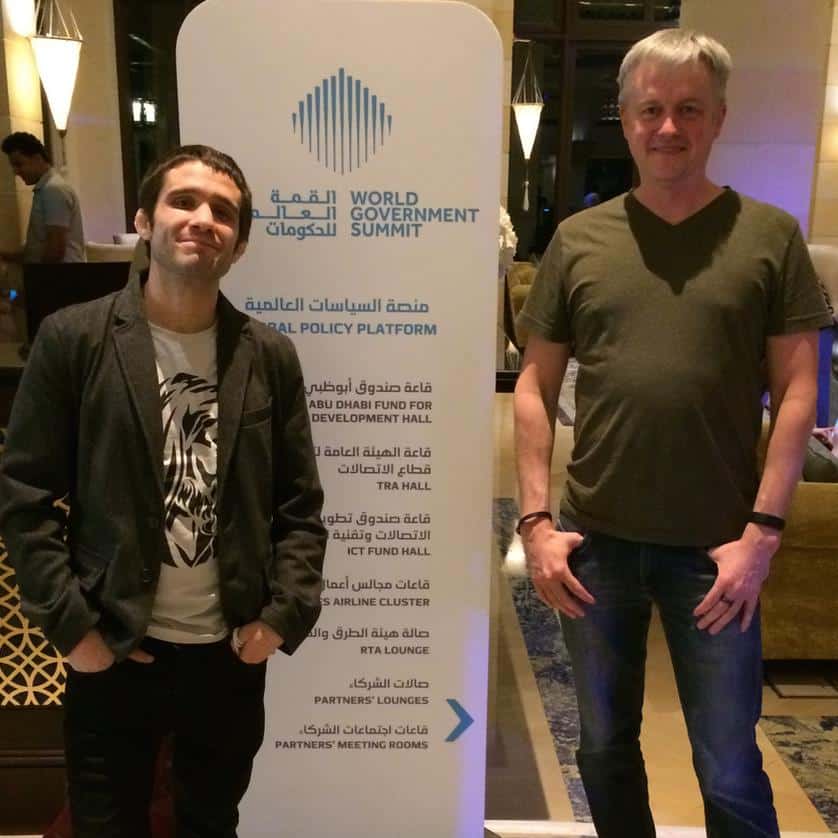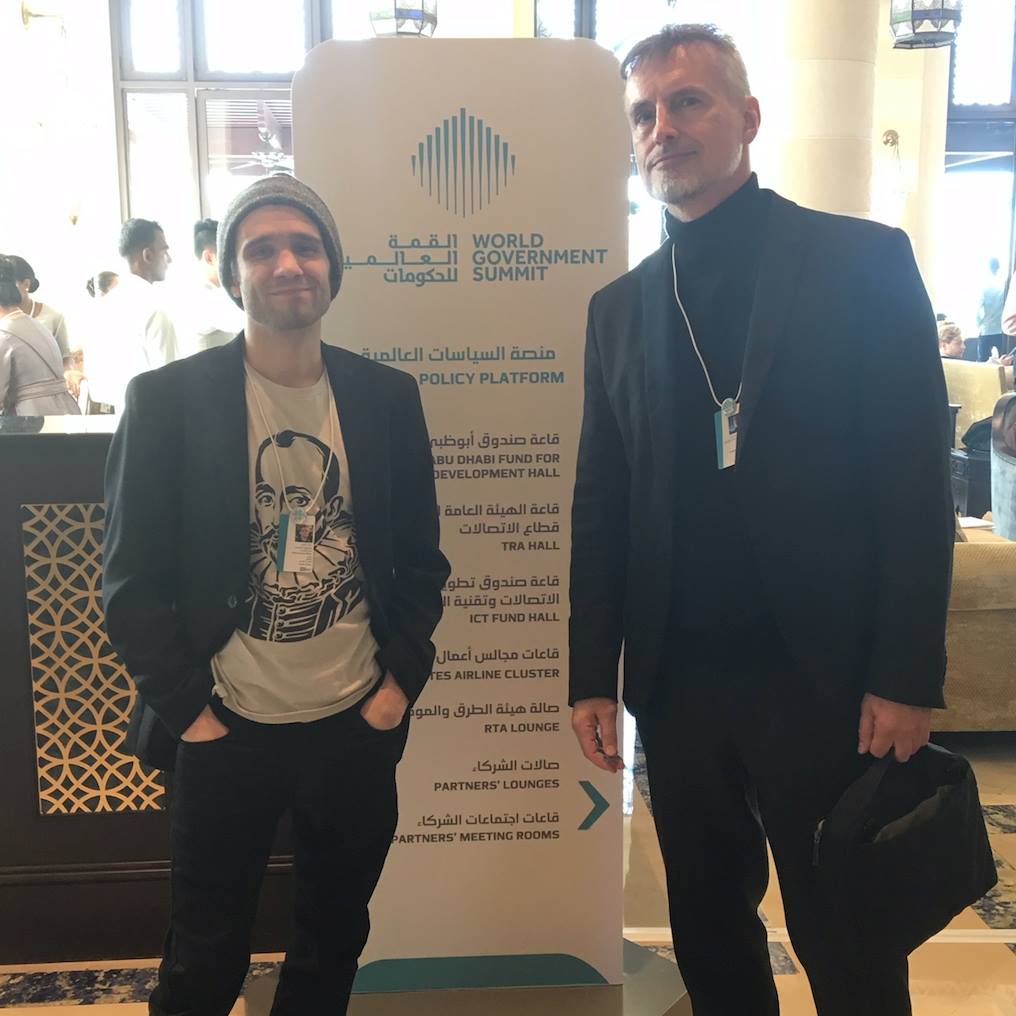Event Title: World Government Summit, AI Governance Roundtables
Event Host: United Arab Emirates
Date: February 10 – 12, 2019
Team Member: Daniel Faggella, Emerj Founder and CEO
Contribution: Roundtable discussions
What Happened
The World Government Summit is put on every year in Dubai to discuss the future of governance in response to new technologies.
This year, they had a very large roundtable on governance and artificial intelligence. The roundtable involved thinkers from all over the world, including from the Geneva Center for Security Policy, from Oxford University, from Berkley, from Stanford, as well as business leaders who are involved in AI, such as Jann Tallinn and leading AI researchers like Jurgen Schidhuber. I got the chance to interview both Tallinn and Schmidhuber for our AI in Industry podcast.

There were dozens of roundtables spread out over the course of three or four sessions, each of which was about an hour long. These sessions ranged in various topics. I was a part of a number of these different breakout sessions, including one about the governance of artificial general intelligence, where I was able to speak about our AI Futurescape survey.
I brought up some of the major concerns about AI governance and what AI researchers around the world thought was necessary for AI to be governed successfully. There was a roundtable on AI in education, and we were able to speak to some of the research we’ve done on AI in India and some of the initiatives being taken by the Indian government on education, namely natural language processing for the translation of educational texts into different Indian languages.
There were also people in attendance from OpenAI and other such organizations.
After all the roundtables, there were presentations from the UAE government in which they spoke about some of the AI projects they are aiming to undertake, as well as some presentations from thinkers such as Daniel Kahneman, who spoke about his thoughts and concerns about AI and its promise and opportunity.
What We Learned
- In general, thoughts around AI policy are happening at a higher level. It’s evident that the folks in the policy space are not only more concerned about AI, but are generally more educated on the broad concepts of AI than they were a year or two ago. They have a better sense of what AI can and cannot do and a better idea of how that might affect things, as well as what aspects of Ai might need to be governed and in what ways.

Jürgen Schmidhuber (right) with Emerj CEO Dan Faggella after their interview at the World Government Summit in Dubai. - It’s also evident that there are many organizations now, such as the IEEE and the Future Society, who I believe did an excellent job organizing the roundtable, involved in AI policies. It’s heartening to see they seem to be collaborating and getting along, at least for now. I personally suspect that as the recommendations and mandates of these individual groups begin getting real traction in regulation, as it becomes clear that one set of ideas will win out over another and define the future of AI in a country or region, that these groups will fight amongst themselves.
- While conversations about artificial general intelligence are still not the primary focus of AI-related policy and governance concerns, it is still on the map. The session I was involved in was chaired by Richard Mallah with the Future of Life Institute, who did a good job thinking through possibilities for the governance of AI. Conversations about artificial general intelligence are trickling their way to policy experts who are considering that AGI could happen. This is probably good because I think we’re going to need as many minds as we can if and when that crescendo of intelligence comes about.
Header Image Credit: World Government Summit




















